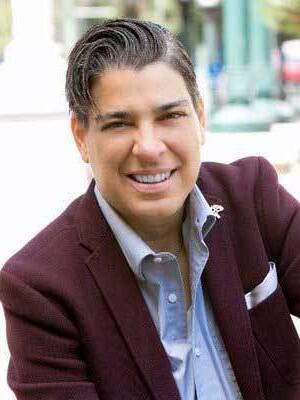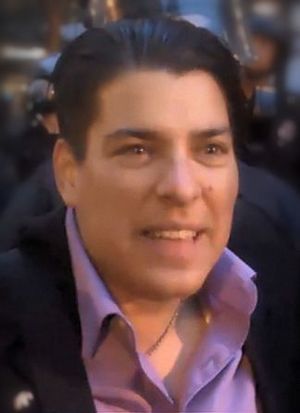Rebecca Kaplan facts for kids
Quick facts for kids
Rebecca Kaplan
|
|
|---|---|
 |
|
| Interim Member of the Oakland City Council District 2 |
|
| Assumed office January 6, 2025 |
|
| Preceded by | Nikki Fortunato Bas |
| Member of the Oakland City Council At-large District |
|
| In office January 6, 2009 – January 6, 2025 |
|
| Preceded by | Henry Chang, Jr. |
| Succeeded by | Rowena Brown |
| Vice Mayor of Oakland | |
| In office January 19, 2021 – January 6, 2025 |
|
| Preceded by | Larry Reid |
| Member of the AC Transit Board of Directors |
|
| In office June 18, 2002 – December 17, 2008 |
|
| Preceded by | Matt Williams |
| Succeeded by | Joel Young |
| Constituency | At-large |
| Personal details | |
| Born |
Rebecca Dawn Kaplan
September 17, 1970 Toronto, Ontario, Canada |
| Political party | Democratic (since 2008) |
| Other political affiliations |
Green (until 2008) |
| Alma mater | Massachusetts Institute of Technology (BS) Tufts University (MA) Stanford University (JD) |
| Website | Government website |
Rebecca Dawn Kaplan (born September 17, 1970) is a Canadian-born American lawyer and politician. She served on the Oakland City Council from 2009 to 2025 for the at-large district, which means she represented the entire city. She is now the interim City Council Member for District 2. Kaplan is a member of the Democratic Party.
Born in Ontario, Canada, Kaplan earned degrees from the Massachusetts Institute of Technology, Tufts University, and Stanford University. She moved to Oakland in the 1990s. There, she worked as a lawyer helping people with housing issues.
Kaplan was first elected to the Oakland City Council in 2008. She was the youngest person ever elected to the council. She has also served as the council president and vice mayor of Oakland.
Contents
Early Life and Education
Rebecca Kaplan was born on September 17, 1970, in Toronto, Ontario, Canada. She grew up in Hamilton, Ontario. As a child, she heard many stories about social justice and workers' rights. These stories inspired her to work in public service, helping her community.
In the 1980s, Kaplan moved to the United States for college. She studied psychology at the Massachusetts Institute of Technology (MIT). As a student, she joined a group that convinced the school to change its policies on investing and discrimination. She was also a member of the Phi Beta Kappa academic honor society.
Later, she earned a master's degree in urban and environmental policy from Tufts University. She also received a law degree from Stanford University.
Start of Her Career
Kaplan began her political journey by volunteering for Ted Kennedy's re-election campaign in 1994. After moving to Oakland in the mid-1990s, she worked as an aide in the California State Assembly.
She later became a lawyer, helping people who had problems with their housing. She also worked as a labor attorney, a lawyer who helps workers.
In 2000, Kaplan ran for the Oakland City Council as a member of the Green Party but was not elected. She later joined the Democratic Party in 2008.
Political Career
AC Transit Board of Directors
In 2002, Kaplan was chosen to join the AC Transit Board of Directors. AC Transit is the public bus system for Alameda and Contra Costa counties. She was elected to a full term later that year.
As a director, Kaplan worked to add more late-night bus services. She also supported projects that made it easier for people to walk and bike. She helped the bus system get its first buses powered by hydrogen fuel cells, which are better for the environment. She was re-elected in 2006 and left the board in 2008 when she was elected to the Oakland City Council.
Oakland City Council
Kaplan was elected to an at-large seat on the Oakland City Council in 2008. This meant she represented all the people of Oakland, not just one district.
Kaplan was chosen by the other council members to be vice mayor in 2021. She was also the council president from 2019 to 2021 and served as vice mayor once before, from 2015 to 2016.
She ran for mayor of Oakland in 2010 and 2014.
Helping the City's Budget
In 2009, the city of Oakland did not have enough money to pay for all its services. To help solve this problem, Kaplan proposed a new tax on businesses that sold certain types of medicine. The businesses supported the idea, and voters approved it. This successful idea brought Kaplan national attention.
Registering Vacant Buildings
In 2009, many buildings in Oakland were empty. Kaplan created a new rule that required owners of vacant buildings to register them with the city. This was done to help prevent illegal activities from happening in these empty properties. The city council approved her plan.
Working with Federal Agencies
In 2017, Oakland police helped federal agents from ICE during an investigation. Some people worried this would make residents afraid to call the police for help.
Kaplan proposed a rule to make it clear that Oakland was a "sanctuary city." This meant the Oakland Police Department would not help ICE with its work. The city council voted to pass this rule.
Tax on Empty Land
To help with the problem of homelessness in Oakland, Kaplan supported a tax on empty properties in 2018. This tax is charged to owners of land and buildings that are not being used. Voters approved this tax, called Measure W, in November 2018.
Oakland Athletics Ballpark
In 2019, Kaplan was part of an effort to sue Alameda County. The lawsuit was about the sale of the land where the Oakland-Alameda County Coliseum and Oakland Arena are located. The county had agreed to sell the land to the Oakland Athletics baseball team for $85 million.
The city of Oakland argued it should have been given the first chance to buy the county's share of the land. The baseball team's plan for the land included building new housing, restaurants, and shops. The team's president, Dave Kaval, said he was "completely blindsided" by the lawsuit. Other city leaders, including the mayor, also disagreed with the lawsuit.
2022 Alameda County Supervisor Election
Kaplan ran for a seat on the Alameda County Board of Supervisors in the 3rd district. She came in first place in the first round of voting. This led to a runoff election against Lena Tam, the former vice mayor of Alameda. In November 2022, Kaplan lost the election to Lena Tam.
 | William M. Jackson |
 | Juan E. Gilbert |
 | Neil deGrasse Tyson |


